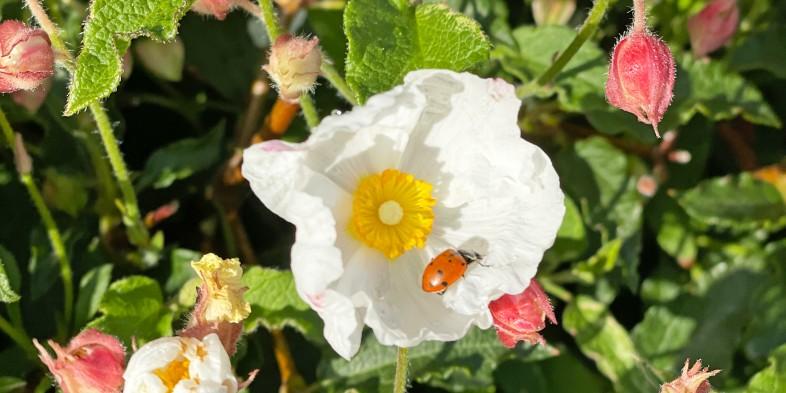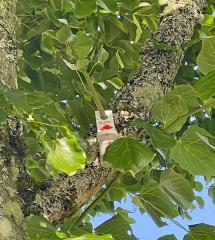
Ladybugs to the rescue!
When street trees, garden beds in the parks, or roses in the boulevards are attacked by aphids, the Parks team releases these little helpers to tackle the problem.

This week the Colwood Parks team is releasing thousands of ladybugs into trees and shrubs around Colwood as a way to manage the damage caused by pests such as aphids. Ladybugs are an inexpensive and environmentally friendly alternative to harmful chemical pesticides.

This morning Councillor Misty Olsen joined the Parks team to learn more and help launch the ladybugs into action. The ladybugs fall asleep when the temperature is cool, so they are released in the early morning, but they get active quickly in the sunshine and get to work munching on aphids.

Midges for the trees
In addition to the ladybugs, the Parks team puts aphid midges to work in some of the street trees around town. The midges are more likely to stay put in windy locations, and are almost as voracious as the ladybugs, consuming 60 different species of aphids. Small pill-bottle sized containers of the wee beneficial midges are hung in the trees so they can make their way onto the leaves.
Fun facts about ladybugs
- Did you know that a single ladybug may consume as much as 5,000 aphids in its lifetime?
- Ladybugs can live up to two or three years if conditions are right.
- Ladybugs hibernate when it's cold. During hibernation, they feed on their stored fat.
- The spots on a ladybug fade as the ladybug gets older.
Interested in putting ladybugs to work in your garden?
You can usually purchase a small bag of ladybugs at our local Colwood Gardenworks on Island Highway across from Thrifty Foods.
